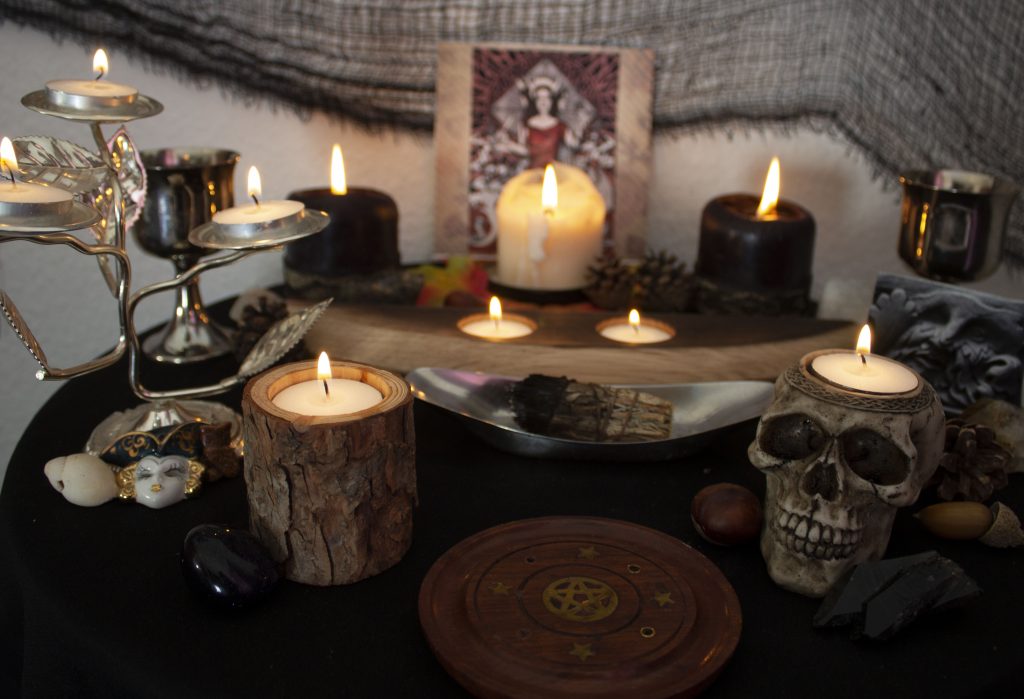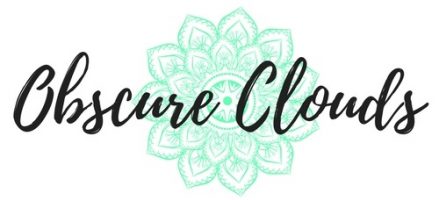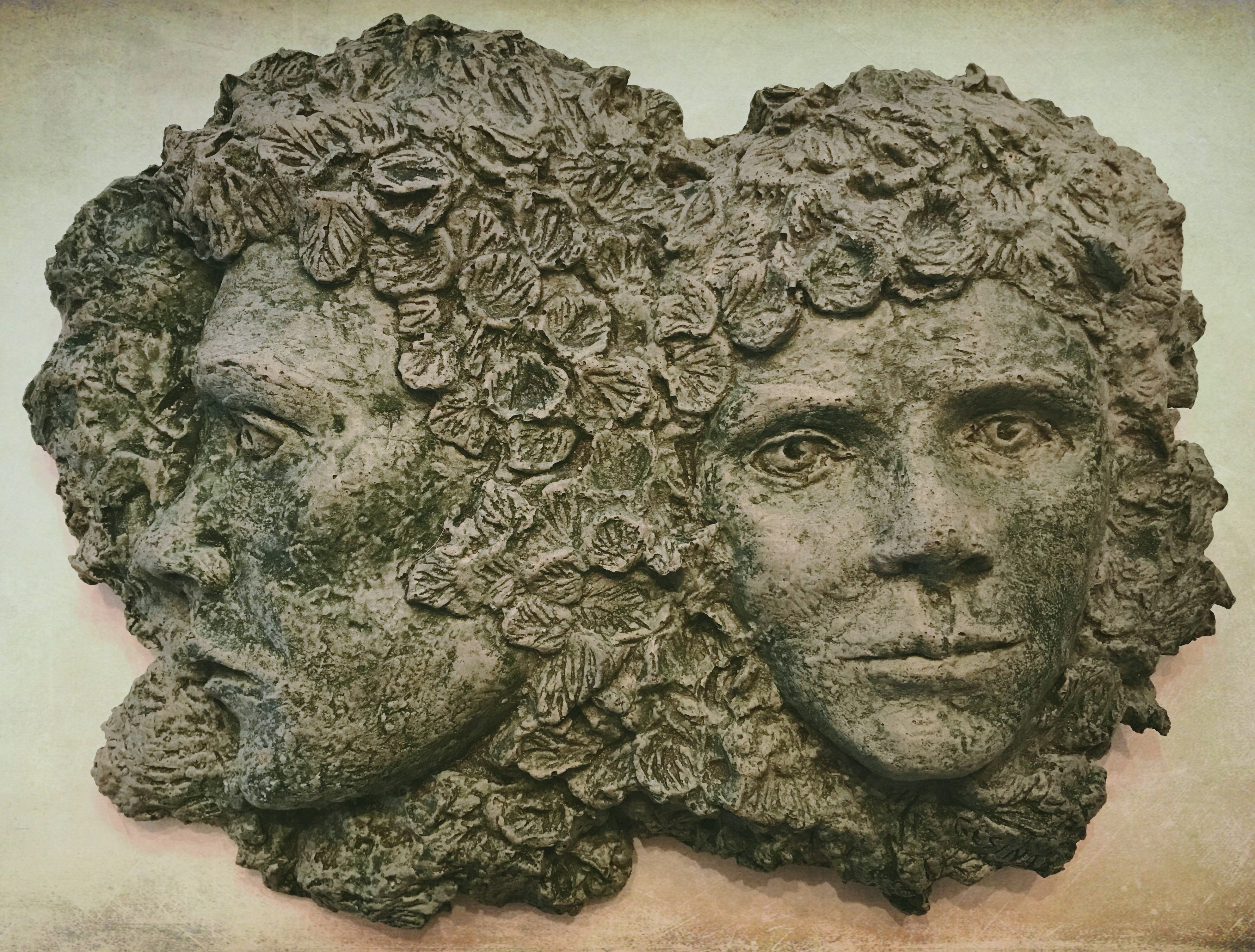Unlike most polytheistic Pagans, as a pantheist, I don’t necessarily believe in the literal existence of personal deities. However, this doesn’t mean that I leave deity out of my spiritual practice altogether—rather, I incorporate them in ways that work for me, interweaving my pantheism with a form of “soft polytheism.”
Hard vs. Soft Polytheism
In traditional or “hard” polytheism, gods and goddesses are understood to be distinct from one another, with their own separate personalities, correspondences, and forms of worship. For these Pagans, working with a particular deity feels notably different from working with others, as they each have a particular energy unique to them. For instance, a hard polytheist would recognize that working with Hades, the Greek god of the Underworld, is dramatically different from working with the Egyptian god of the afterlife Anubis, and would never probably equate the two. For the polytheist, Hades and Anubis are distinct gods with their own personalities and desires who deserve to be recognized and worshiped as such.
For “soft” polytheists, on the other hand, all gods and goddesses are thought to be aspects of the same one or two deities—a belief system that overlaps with a kind of monotheism or duotheism. Wiccans, for example, can be soft polytheists if the adhere to the notion that different gods and goddesses are actually just aspects of what they call the Horned God and the Divine Mother or Triple Goddess—overarching male and female aspects of the sacred. In traditional Wicca as it was founded by Gerald Gardener, we see a particular emphasis on the opposition and sacred sexual unity of the male and female energies, ultimately manifest within the God and the Goddess. So, for some Wiccans (but not all), gods like Anubis, Hades, Zeus, Loki, etc. are merely different forms or expressions of one God, and goddesses like Diana, Brigid, Persephone, Isis, and so on are aspects of one Goddess.
“Authentic” Paganism?
There are ongoing debates within the Pagan community as to whether soft polytheists are actually polytheist—or truly Pagan—at all. Some claim that because Pagans of the past were hard polytheists, believing in the literal existence of multiple distinct deities, anyone who claims to be Pagan today should also adhere to these beliefs.
I take issue with this position, first of all because I don’t think anyone should have the right to decide what counts as “authentically Pagan” and what doesn’t, and second, because the connection between pre-Christian Paganism and contemporary Paganism is complicated. Today’s Paganism is inherently modern, there is no continuous or unbroken connection between Pagans of the past and Pagans of today. So, unless you’re a Reconstructionist, then there’s no need to strive for accuracy when shaping your own practice. As an experiential religion, what should matter most is that the practice works for you—ignites the spark within you—regardless of whether you’re attempting to replicate ancient traditions and beliefs or not.
Difference and Sameness
Another reason why I don’t really buy into these debates about whether soft polytheists can “authentically” work with deity is because I don’t believe that unity necessarily negates difference, and vice versa. In other words, I don’t see why the ultimate underlying unity of deity must detract from the individuality of each.
As a pantheist, I believe that everything is connected in the sacred unity of the cosmos. But this ultimate Oneness doesn’t mean that the separate parts are not complete in and of themselves. As an individual, I am myself whole, while at the same time, part of a greater whole: a microcosm of the macrocosm. Being an aspect of a greater unity does not detract from my own unique existence, and I believe the same can apply to personal deities—even if they are seen as aspects of the same overarching God or Goddess, this need not necessarily undermine or negate their individuality.
In difference, there is always an underlying sameness. As the great Alan Watts notes, “black implies white, self implies other, life implies death,” and, I would add, part implies whole. Nothing exists in isolation, everything is a part of the bigger picture. From this perspective, no hard divide between the belief in one or two overarching deities and the existence of multiple personal deities is necessary—they can be compatible with one another.
Soft Polytheism and Pantheism
But, as a pantheist, I don’t necessarily believe in the literal existence of any personal deities. “God” for me is the All that permeates everything—is unity itself. For me, the sacred is imminent rather than transcendent—it is not separate from this world, but it is this world.
However, just because I don’t really believe in the existence of deities doesn’t mean that I leave them out of my practice completely. In a pantheistic rendition of “soft polytheism,” gods and goddesses are not seen as aspects of an overarching deity, but as expressions of nature—metaphors for various elements of the Universe. They’re not literal beings, but archetypes that have prevailed through time and space, running through the very core of human culture. In this sense, deities are metaphoric notions of the greater whole, different ways of conceiving of the sacred totality.
So, as a pantheist, and therefore as someone who believes that absolutely everything is sacred, deities actually help me engage in the reverence of nature and the cosmos in much more easily manageable ways. This Universe is infinitely vast and infinitely sacred, and attempting to grasp this infinitude in a meaningful way is far from simple. Deities, then, become a means of narrowing down the incredible magnitude of the cosmos into metaphors and symbols that are much easier to work with in spiritual practice.
When I incorporate deity into ritual, or even daily practice, I’ll work with them both in the Wiccan sense, calling on male and female energies, and in a polytheistic sense, where I treat the gods or goddesses as individual beings that command a certain kind of worship and respect.
For me, ritual creates a space of suspended disbelief. While outside of ritual, I may not believe in the literal existence of personal deities, within the context of spiritual practice I leave these views aside, and engage with deity as if they were as real as you or I. Why? Because it works for me. And because regardless of my beliefs, it’s incredibly rewarding. Some of my most powerful moments at the altar have been in connection with personal deities.
Issues with Soft Polytheism
While I obviously don’t have any problem with incorporating metaphorical notions of deity into one’s practice, or with anyone calling themselves a “soft” polytheist, there are others who do take issue with this. For some hard polytheists, soft polytheism is problematic in that it promotes an overly watered-down approach to deity worship, or even a disrespectful kind of Paganism.
I totally understand why some polytheists would take offence to me working with deity in the way that I do. For some, my approach presents a form of spiritual appropriation, since I’m picking up elements from a particular belief system that isn’t my own and reshaping them to fit my individual practice.
And I get that. I get that not everyone is going to like how I choose to work with the gods and goddesses. For some people, what I’m doing is downright wrong. And while I don’t necessarily agree with this perspective, I do make a conscious effort to be as respectful to traditional polytheistic Paganism, and to the deities themselves, in my practice.
I’m careful to always do significant research on a god or goddess before incorporating them into a ritual, and I actively try to avoid the kind of “spirituality lite” or spiritual “fluff” that some associate with soft polytheism. As such, there’s usually considerable depth and genuine veneration that goes into my workings with deities.

For instance, in the months that I had an altar set up to honour Hekate, the Greek goddess of magic and the crossroads, I made sure I was learning something new about her every day. I wrote letters to her, spoke to her, and crafted spellwork based on her mythology and symbolism. I went out at midnight on the night of the dark moon to leave offerings of mushrooms and honey at a crossroads for her. She was my guide as I ventured down into the Underworld, into the depths of my unconscious mind. She led me to some dark places, shining her torch over shadows I’d ignored for so long. It wasn’t a relationship that I entered lightly, and the personal growth and spiritual development that resulted from it was well worth it. It was a relationship that I wouldn’t call “fluffy” in the slightest.
So, while I understand why some Pagans may take issue with my approach to deity, and I do respect their opinions, I also know that my own flavour of soft polytheism, and the connections it’s allowed me to build with various gods and goddesses has meant that I’ve been able to experience some intense emotions and a powerful energies that I’m not sure would have been possible otherwise. And for that reason, I plan to keep deities as a part of my spiritual practice, regardless of beliefs outside of ritual.
Because ultimately, when it comes to matters of the spirit, I find that subjective experience matters much more than objective reality.



This is me! I didn’t know there were words to describe this approach to deity. I’ve never really tried to connect with any specific deity, mostly because I had internalized the thought that I was doing it wrong. I thought that I was a bad pagan because I didn’t believe concretely. You’ve written out my approach to deity almost exactly. Thank you for illuminating a part of me!
I’m glad you found the post helpful! You’re definitely not a bad Pagan–if there’s one thing I’ve learned through studying Paganism and getting involved in the community, it’s that there are so many different ways of being Pagan. While it’s not necessarily an overly popular way of approaching deity, there are others who also feel this way, and don’t necessarily believe in personal deities either. In my opinion, that doesn’t make you any less of a Pagan! 🙂
Thanks for your comment!